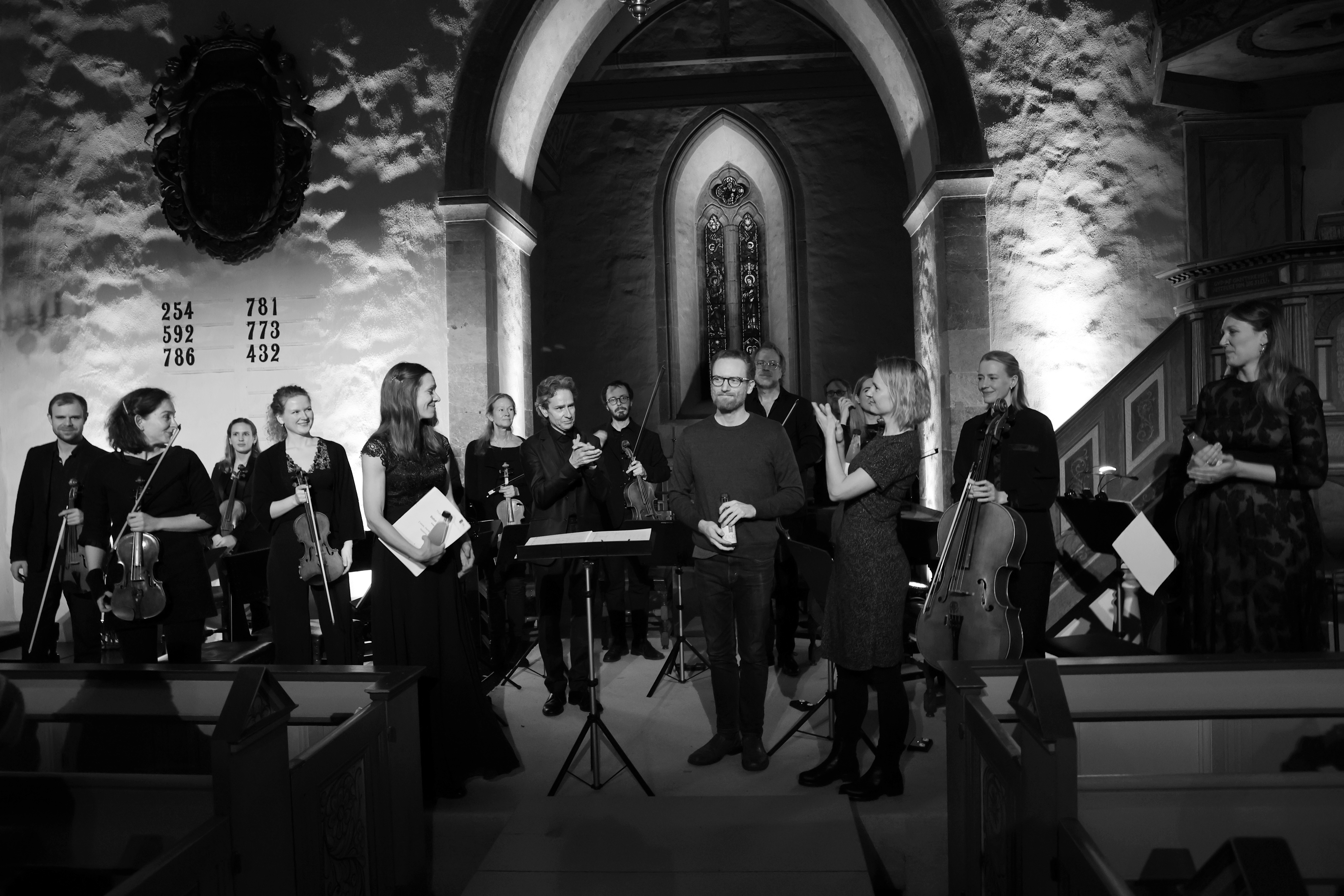About
My starting intention in composing this piece was to write a Stabat Mater about the Stabat Mater - what it has, and has not, been over its 600-year musical history. Early in the process, there were images in the news of mother and child being separated at the US/Mexico border, screaming for each other, and this crystalized for me what the emotion of the scene described in Stabat actually is. So, in my reading, what Stabat has largely not been is a humanistic representation of the agony of a mother watching her child brutally torn away from her (in this case, killed); neither has it really represented her natural attempts to comfort him, despite her own suffering. I also expand the view, and treat the Stabat Mater as an example of the beautification of suffering more broadly (an allusion to Barber’s Adagio, for example, is due to its use in Platoon).
A challenge for me while writing the piece was to thus balance my wish to participate in the rich tradition of beautiful, melancholic music in Stabat Mater settings - which is what initially drew me to the project - while also looking at what that obscures. Particularly after the turn midway through the text (when the author starts asking to feel Mary’s pain himself), the music shifts from being mostly about the tradition, to trying to make things as psychologically real as I could, using a variety of strategies. However, to ask the question, “Why so beautiful?” one must refer to beauty.
Commissioned by Lars-Erik ter Jung, with kind support from Arts Council Norway. Premiered at Oslo International Church Music Festival. Published by Edition Wilhelm Hansen. Nominated for the Norwegian Society of Composers' “Work of the year” (2023), and the Nordic Council Music Prize (2024), as well as a “Composer of the year” prize (2025) from the Norwegian publishers association. The recording on BIS Records recieved Editor’s Choice at Grammophone, appeared on serveral “best of 2024” lists, and was nominated for 2 Norwegian Grammy Awards (Spellemann).
Listen
Eirin Rognerud, soprano
Astrid Nordstad, mezzo
Terjungensemble
Lars-Erik ter Jung, cond.
Scroll down to watch the first performance.

Watch the full premiere performance (or excerpts, below):
Silje Aker Johnsen, soprano
Astrid Nordstad, mezzo
Terjungensemble
Lars-Erik ter Jung, cond.
Oslo International Church Music Festival
Reflections by others
Bodil Maroni Jensen, Ballade (In Norwegian)
Aksel Dalmo Tollåli, Aftenposten (In Norwegian)
Rasmus Weirup, Seismograf (in Danish)
Magne Fonn Hafskor, Ballade (In Norwegian)
Radio interview (in Norwegian) on NRK's “På Konsert”
Review in Gramophone Magazine (Editor`s Choice, Awards Issue 2024) (In English)
Remy Franck, in Pizzicato (In German and English)
More
I watched the water pour down the mountainsides, like tears. …It was an extraordinary piece… I scribbled in my notebook something about how do you prepare an audience for this? “Do you tell an audience that their hearts are about to be broken?” I wrote. I think we all wept by the flickering candlelight for mothers around the world torn from those they love.
Fiona Talkington, BBC presenter
The contrast pierces every time the soprano starts a phrase high in the register. At the limit of what is possible. At the limit of what can be endured. On the verge of a scream. The orchestra lies faintly below, with long notes that without warning leave the beautiful and slide into noise… Towards the end, the noise penetrates the orchestra. The human is breaking apart.
Bodil Maroni Jensen, Ballade
Tyler Futrell’s new Stabat Mater is so beautiful it hurts. … the great, all-consuming grief is expressed. … This is music that demands the greatest of all emotions, which he brings out in an often incredibly beautiful way. There is comfort in grieving together, something we may need more now than ever. With Futrell, this grief really comes through, and I hope it won't be long until the next time.
Aksel Dalmo Tollåli, Aftenposten
...references and allusions that are torn apart and reassembled in surprising combinations. … Even the most romantic passages trembled ominously in the constant awareness of the terrible sorrow that lay just within reach. The most harmonious passages were quickly transformed into dragging, shrill cries of lamentation, while the purest beautiful song suddenly, without warning, broke into a desperate howl, and the most cautious bow strokes were replaced by firm blows directly on the wooden bodies of the instruments, which sounded like lifeless bones crushed against the floor.
Rasmus Weiberg, Seismograf
Tyler's version was infinitely beautiful, and many had to wipe away tears after the concert. ... Fabulously played by Terjungensemble. After several loud interludes, the work ends as quietly as it began. Splendid.
Hardanger Folkeblad
I’ve attended my life's greatest music experience. First, I heard Scarlatti’s Stabat Mater, which was fine but nothing compared to the musical and emotionally shock after the premiere performance of Tyler Futrell’s Stabat Mater. It was such a great and heart-wrenching sorrow performed by a soprano and mezzosoprano, and I’ve never heard anything that has had such a great impact on me before.
Response to audience survey at the premiere

